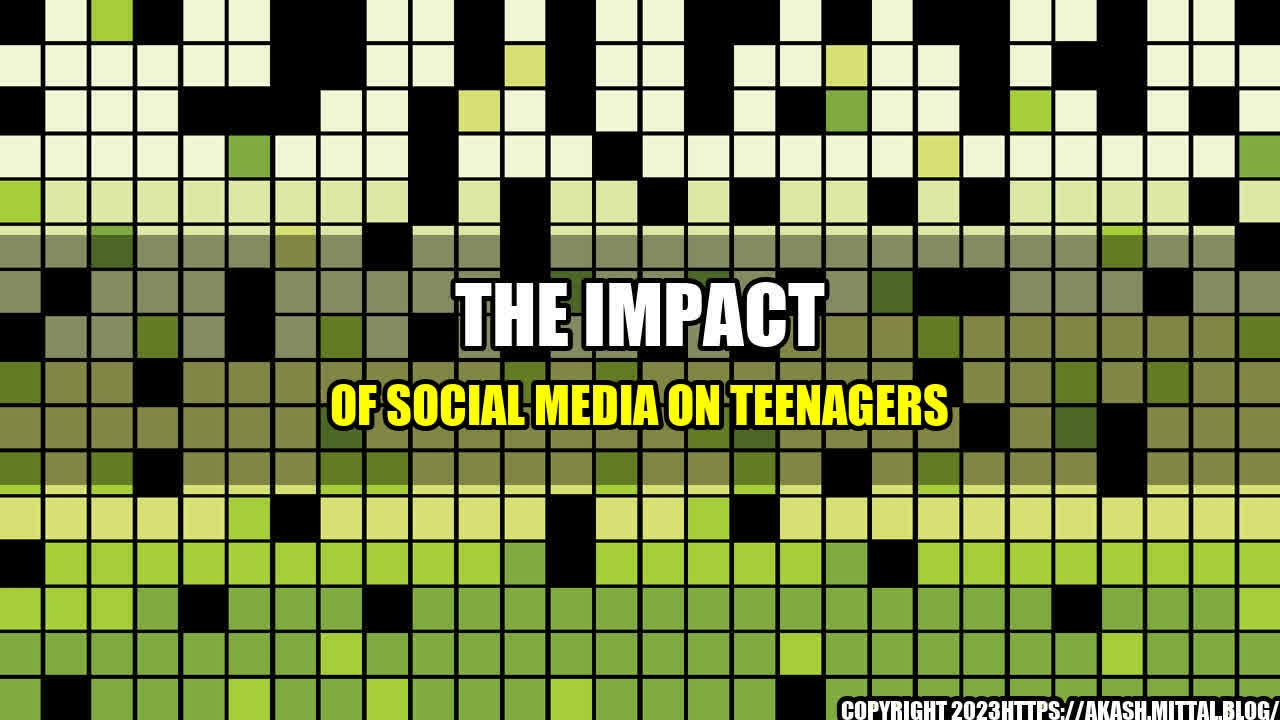Social Media Impact on Teenagers
Research shows that teenagers who spend more than 2 hours a day on social media are more likely to have mental health issues such as anxiety and depression. They are also more prone to cyberbullying and may have lower self-esteem due to the constant comparisons they make with others. In addition, prolonged screen time can lead to poor sleep habits, which can affect their academic performance and overall health. Furthermore, social media addiction can impair their ability to form healthy relationships and maintain real-life connections.
How Parenting Can Mitigate the Negative Impact of Social Media on Teenagers
1. Open Communication: Parents need to communicate with their teenagers about the potential dangers of social media and have open discussions about the effects it can have on their mental health, self-esteem, and relationships. This can help them understand the importance of setting boundaries and taking breaks from social media to foster real-life connections.
2. Model Healthy Behavior: Parents should lead by example and model healthy social media habits themselves. Teenagers are more likely to follow in their parents' footsteps, so if they see their parents spending too much time on social media, they may feel it's acceptable behavior and engage in the same habits.
3. Set Ground Rules: Parents can help mitigate the negative impact of social media by setting ground rules around screen time, including when and where it's appropriate to use phones or other electronic devices. Also, parents can encourage other activities such as outdoor sports, arts and crafts, and spending time with friends and family to offset the excessive screen time.
to Illustrate the Points
When I was a teenager, I was addicted to social media. My parents didn't pay much attention to it, but one day my dad confiscated my phone for a day. I became irritable and snappy, just like Sarah. However, I also realized how much time I was wasting on social media, and it motivated me to cut down my screen time. By the end of that week, I found myself more productive and mentally refreshed, and started engaging in other activities I enjoyed, such as yoga and reading.
Another example is my cousin, who is a mother of two. She sets a timer for social media and tells her children that she is giving 30minutes a day only, to spare time for her children and house chores too. She also encourages her children to engage in other activities such as gym, cycling, piano lessons every week. They find these activities as a stress buster and also it enhances their personality and skills.

Curated by Team Akash.Mittal.Blog
Share on Twitter Share on LinkedIn